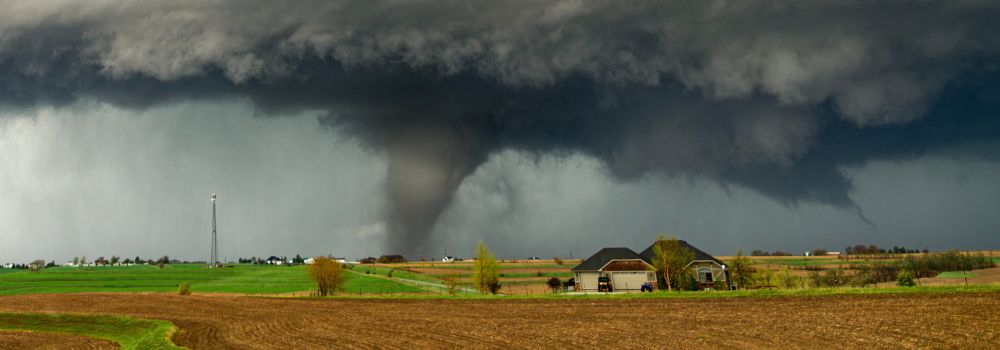
The 2025 spring tornado season has been devastating for communities across the United States, as relentless and powerful storms have caused power outages, destruction, and loss of life.
During a severe tornado outbreak on May 15-16, at least 50 tornadoes tore through the Midwestern and Southeastern United States, including Kentucky, Virginia, Missouri, Oklahoma, and Western Texas. At least 28 people were killed. The storms destroyed hundreds of homes in southeastern Kentucky, especially in the small community of London, and damaged 5,000 homes and buildings in St. Louis, Missouri, which may cost the city over $1 billion.
Earlier this spring, in March, severe storms wreaked havoc on eight states in the Midwest and Southeast U.S., churning up dust storms, fanning wildfires, and unleashing dozens of tornadoes that touched down on March 14 and 15. More than 40 people lost their lives across Kansas, Oklahoma, Mississippi, Arkansas, Texas, Alabama, and Missouri and hundreds of homes and businesses were destroyed.
And a week later, meteorologists issued another round of tornado warnings across Arkansas, Kentucky, Missouri, Tennessee, and Mississippi. The National Weather Service confirmed that at least one vortex touched down in Rolling Fork, MI this week, on the evening of Sunday, March 23rd—just shy of the anniversary of a devastating tornado that hit the town on March 24, 2023.
At the Natural Hazards Center, we extend our condolences to those who have lost loved ones and suffered damage during this brutal tornado season.
2025 has proved an especially active year for tornadoes so far, according to data collected by the National Weather Service, wiith more than 850 tornadoes reported. Meteorologists say it is possible that this will be one of the busiest tornado seasons on record, and, in many states across the U.S., there are also fewer forecasters tracking storms this year, which elevates the risk that tornado-prone communities are facing.
These tornadoes, and the promise of more to come this year, call attention to the plight of those living through repeated disasters and underscore the urgent need for evidence-based research to address the increasing impacts of these severe storms.
In light of these needs, the Natural Hazards Center offers resources and funding opportunities to support researchers—and those who support the research response—in studying and applying findings.
Research Funding
Quick Response Research Awards
The National Science Foundation-funded Quick Response Award Program provides training and funds for researchers to quickly collect perishable data following disasters and other extreme events. Available funds will support awards up to $5,000 each.
Other Resources
CONVERGE Resources
The CONVERGE Training Modules and Extreme Events Research Check Sheets can help cultivate the skills and understanding needed to conduct ethical and culturally competent disaster research. Trainings are geared toward understanding the emotional challenges of such research, collecting perishable data, working with socially vulnerable populations, engaging in reciprocal research partnerships, and several other relevant topics.
SSEER Network
The Social Science Extreme Events Research Network—or SSEER—is a global network of social scientists who study hazards and disasters. Please visit the SSEER map to identify locally-affected researchers and social scientists who study topics relevant to this disaster such as the human effects of wildfire, evacuation behavior, warnings, and health outcomes.
Tornado-Related Publications
With funding from federal agencies, the Natural Hazards Center has supported dozens of research projects to investigate tornado outbreaks and other disasters across the country. Please visit this page for reports, data publications, and other resources that demonstrate lessons learned about tornado warnings, risk perception, sheltering, and recovery, among many other relevant topics. The publications offer key insights and specific recommendations that can be applied to reduce future harm. We hope the approaches and findings from this prior work can be used to inform the research response and recovery from future tornadoes.